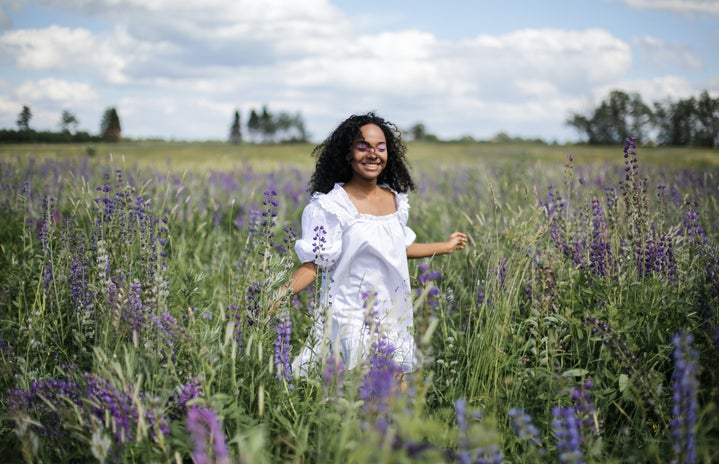I am the eldest of four—however, I grew up the only girl in my family, and as I got older, I discovered I shared little to no common interests with my brothers. They loved to play soccer, and I preferred jumping rope. When they learned how to work RC cars, I was figuring out which hairstyle looked the cutest on me.
Being the only girl in a house full of boys made me naturally lean into solitude. While they would go off playing their games, I found comfort in my own space, whether that was reading a book or practicing a new hobby like sewing or cooking. At first, I saw it as a sign that I was different or even isolated, but as I matured, I came to understand that solitude was actually my safe space. In fact, it became one of the most important parts of my self-care routine. I started to see the need in that alone time to recharge, especially when I learned I was an introvert.
As I entered my teenage years and eventually adulthood, life’s pressures mounted: school, friendships, the weight of expectations. During this time, solitude turned from something I just experienced to something I very much needed. It became an anchoring practice. In moments of silence and stillness, I could reflect, recharge, and reconnect with myself. I learned that solitude wasn’t loneliness, but rather a powerful way to cultivate self-awareness and peace—although I did get lonely sometimes.
In today’s environment, solitude can seem like a luxury or a strange concept, especially in college. We’re constantly overwhelmed with the desire to be connected and to keep up with the latest trends, responding to numerous messages and trying hard to never miss out. However, I’ve discovered that unplugging for a while and allowing myself to be alone with my thoughts is a sort of self-care that deserves to be emphasized alongside physical health and social engagements.
Through isolation, I’ve learned that being alone does not imply loneliness. It’s a moment when I can face my thoughts without interruption, concentrate on my hopes and dreams, and simply be. It’s a routine in which I give myself permission to slow down, breathe, and listen to my inner voice amidst the surrounding noise. Whether it’s going for a walk by myself, journaling, or simply sitting quietly and listening to music, these moments have genuinely changed my life. They have helped me process emotions, achieve clarity, and remain grounded.
People often think that being busy is the best way to be productive, so taking time to be in solitude can seem pointless. However, it is in these moments that I have healed, grown, and even made the most important decisions of my life. And by learning how to take a step back from our busy lives, we make room for creativity to flow and achieve even greater self-discovery.
If you find isolation difficult or uncomfortable, I recommend starting small, by spending a few minutes of stillness each day. Over time, you may discover that isolation is not something to be feared, but rather something to embrace as an essential part of taking care of yourself. After all, in solitude, we may find peace and self-love, but most importantly, we find ourselves.


